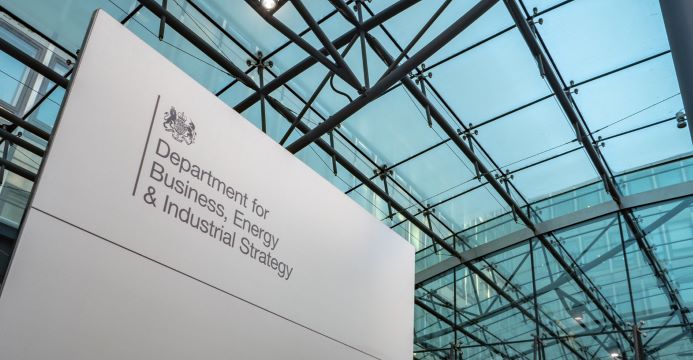
Industrial Decarbonisation Strategy launched: what businesses need to know

The Department of Business, Energy and Industrial Strategy (BEIS) has unveiled its plan to decarbonise heavy industry across the UK in the new Industrial Decarbonisation Strategy.
With £1bn in funding set aside to support businesses in the industrial, public, manufacturing and construction sectors to decarbonise, every business operating within these industries needs to know what the Industrial Decarbonisation Strategy means for them.
The new strategy builds on the Government’s Ten Point Plan for building ‘a competitive, greener future’ for manufacturers and construction companies, and provides a blueprint for public sector organisations to reduce their emissions in line with the UK’s net zero by 2050 target.
Over the next 30 years, BEIS estimates that the new measures within the Industrial Decarbonisation Strategy will create and support around 80,000 UK jobs.
They have also forecast that these measures will reduce industrial emissions by two-thirds in just 15 years, and by at least 90% by 2050, compared to 2018 levels.
Key measures included in the report include:
Encouraging a shift to greener energy sources
The new strategy relies on industrial businesses shifting their energy supply from fossil-fuelled sources to low carbon alternatives, with BEIS expecting 20 terawatt hours of currently fossil-fuelled energy to come from low-carbon sources by 2030.
They are therefore working to establish a policy framework that will encourage industry to switch from fossil fuels to low-carbon alternatives such as hydrogen, electricity and biomass, and they anticipate that heavy industry will source 40% of its energy needs from low-carbon technologies.
Investment in green technology
In order to ‘kick start’ the industry transition to green energy sources, BEIS has allocated £171 million from the Industrial Decarbonisation Challenge to nine green technology projects across England, Wales and Scotland.
These projects will carry out engineering and design studies to explore how to rollout decarbonisation infrastructure, and like the National Infrastructure Strategy, will focus on carbon capture, usage and storage and hydrogen. Around 3 megatons of CO2 are expected to be captured by 2030, compared to minimal levels today.
A further £932 million will be given to over 400 projects across England under the Public Decarbonisation Scheme.
This funding will be available for public sector organisations looking to install low carbon heating systems, such as heat pumps, and energy efficiency measures like solar panels and LED lighting. Hull University Teaching Hospitals NHS Trust, for example, will receive £12 million to install solar panels, heat pumps and roof insulation.
Changes to building efficiency rules
The government estimates that businesses could save up to £2 billion per year in energy costs by 2030 and reduce their carbon emissions by 10% due to new rules they intend to put in place around the way the energy and carbon performance of the UK’s largest commercial and industrial buildings is measured.
The rules, which will also apply to office blocks and factories, could reduce carbon emissions by 2 million tonnes – the equivalent to removing emissions from a town the size of Doncaster.
Creating demand for green products
BEIS are currently developing proposals for new product standards, which will enable manufacturers to shout about their low-carbon credentials and stand out from less sustainable competitors.
They will also be considering ways in which they can take action within public procurement processes to increase demand for green industrial products, to increase the market for these products and help to drive down costs.
Close carbon loopholes
The Government is also keen to reduce ‘carbon leakage’, which occurs when businesses transfer production to other countries with fewer emission constraints to avoid climate taxes and comply with energy efficiency legislation in the UK. Within the strategy, they say that they will establish a targeted approach to mitigate against carbon leakage while ensuring that businesses remain competitive.
Stay ahead of the curve
The new Industrial Decarbonisation Strategy is likely to prompt many organisations and heavy industry businesses to increase their focus on decarbonisation – but it’s the organisations that lead the way that stand to seize the opportunities that are sure to arise for sustainability trailblazers.
To find out how Inspired Energy could help your business to thrive in a low-carbon future, speak to Wayne Brown on 01772 689250 or by emailing wayne.brown@inspiredenergy.co.uk
By Inspired Energy plc
799 Views



